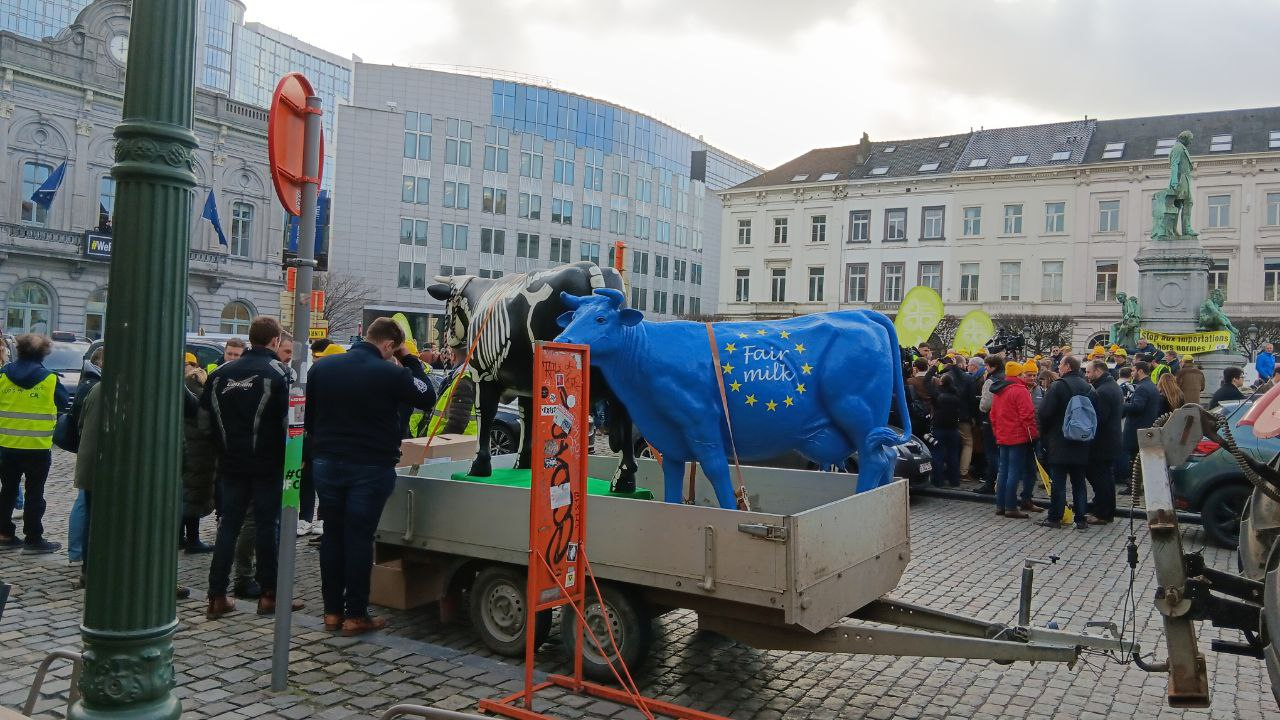
Photo: The European Conservative
Europe’s farmers are once again taking their demands directly to European Union institutions, with the Dutch Farmers Defense Force (FDF) mobilising for a demonstration in the Belgian capital Monday to defend their industry and way of life. Organisers have predicted approximately 3,000 tractors will make their way to the EU capital for the FDF demonstration. Leading farming unions in France, the Netherlands, and Spain have already pledged their support.
Dairy farmers from at least five member states are also planning a manifestation under the motto “Fair income for farmers now” on Monday, to coincide with the meeting of the Agriculture and Fisheries Council of the EU.
Silvia Däberitz, general manager of the European Milk Board, which is behind the protest, said profitability in the sector has seen many dairy farmers abandon their occupation. Däberitz also said young people tend to not enter the agricultural sphere, something that carries implications for both food sovereignty and security across the EU.
The dairy farmers will start their demonstration, complete with life-size plastic cows, from Place Luxembourg at noon, and march towards the Schuman roundabout. The dairy farmers alone are expected to bring several hundred protesters, possibly including agricultural machines.
The EU capital has multiple times this year been the centre of farmers protesting against the bloc’s stringent Green Deal and cheap subpar agricultural imports from countries unencumbered by EU regulations.
June 4th’s protest is expected to bring together farmers from across Europe, spearheaded by the FDF, which was founded in opposition to the imposition of nitrate limits by the Dutch government, prompting four years of protests.
Speaking after a day of protests outside the European Parliament in January, a pan-European alliance of farmers expressed the need to keep up the pressure on Eurocrats in time for elections, as well as the necessity of agrarian groups continuing to assert influence in the next legislative term.
Gdy rozmowy nie przynoszą pożądanych skutków, zostaje w narodach oręż w postaci głosu wyborczego. Z takim hasłem będziemy protestować 4 czerwca w Brukseli – #VoteThemAway czyli "Odgłosujmy ich", zabierzmy im przekonanie, że mogą zrobić z nami wszystko. Nadzieja na normalność nie… pic.twitter.com/kAwaEAJnMr
— Szczepan Wójcik (@szczepan_wojcik) May 14, 2024
A combination of EU green edicts, free trade agreements, and oversupply caused by the Ukrainian war has created an impossible situation for the people who supply Europe with food. Most EU countries have seen farmers protest, including France, Germany, and Poland.
